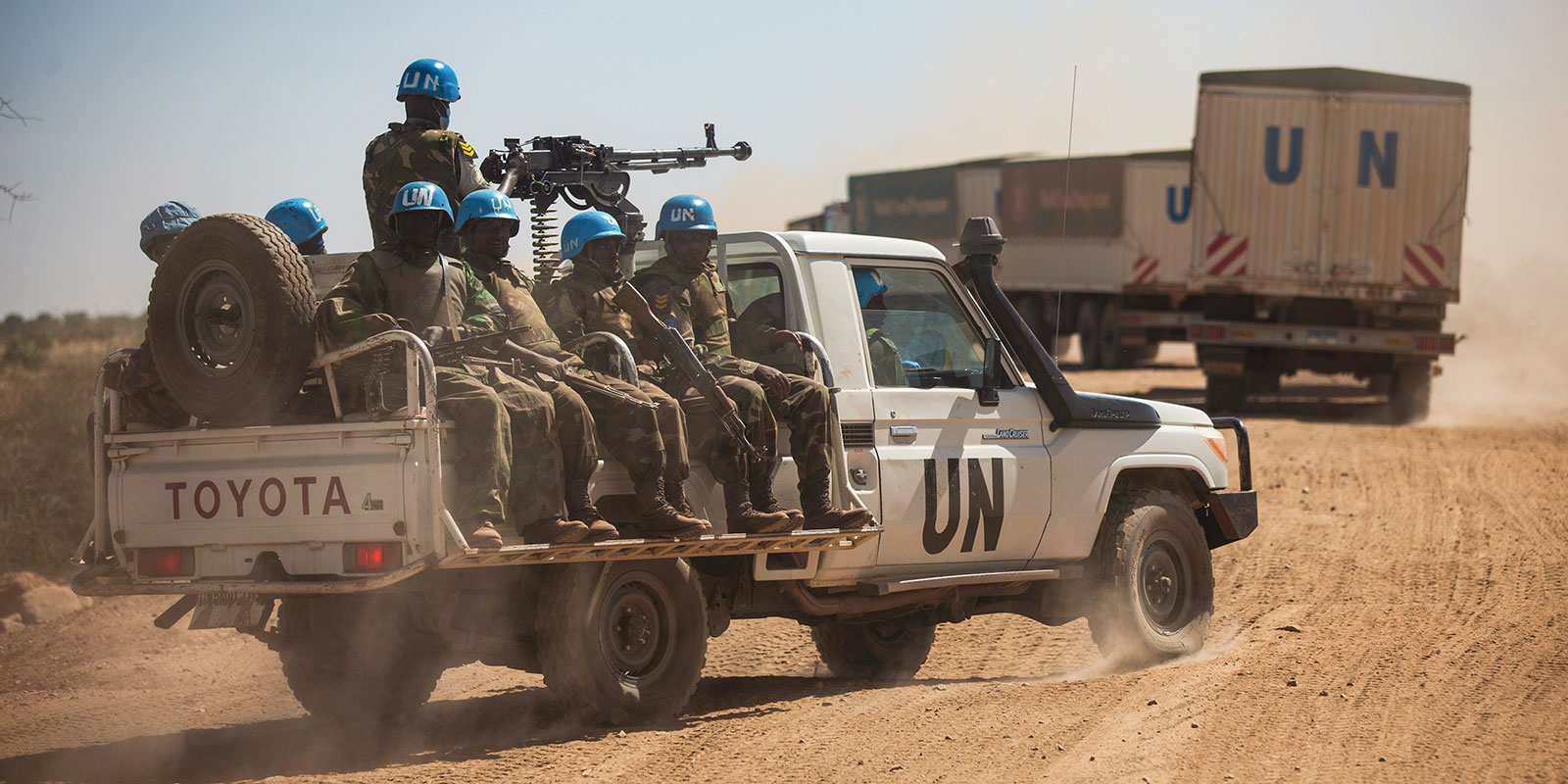To translate the vision of the 2013 Solemn Declaration into action, the Master Roadmap of Practical Steps to Silence the Guns by Year 2020 (AUMR) was adopted by the African Union (AU) Peace and Security Council in 2016. The AUMR was to be executed by the AU Commission in collaboration with key stakeholders, including regional economic communities; economic, social and cultural communities; organs of the AU; the United Nations (UN) and civil society organisations.
COVID-19 has slowed the momentum of the silencing the guns agenda and has abruptly added to the existing challenges, slowing down the attainment of peace and development in Africa @Lamamra_dz
Tweet
Speaking to this endeavour, the 33rd AU Ordinary Summit took stock of achievements and challenges encountered in implementing this flagship project of Silencing the Guns by 2020. It further sought to devise a more robust action plan, informed by the Monitoring and Evaluation Mechanism of the AUMR, for a peaceful and prosperous Africa. Conflicts have robbed Africa of over US$100 billion since the end of the Cold War in 1991. The continent has unfortunately witnessed some of the world’s biggest fatalities, food and humanitarian crises and the erosion of social cohesion, coupled with the total breakdown of economies and decimation of the environmental and political landscape. It is worrisome to see countries such as South Sudan, Central African Republic, Democratic Republic of the Congo, Somalia, Mali and Libya continuing to witness persistent levels of armed conflict, and the decolonisation conflict in Western Sahara is remaining unresolved for so long.
The threat posed by COVID-19 has considerably slowed the momentum of the silencing the guns agenda and has abruptly added to the existing challenges, slowing down the attainment of peace and development:
- first, the COVID-19 pandemic has revealed high levels of stigmatisation and discrimination that have manifested through the negative responses of communities when someone has tested positive;
- the second element is that COVID-19 has affected trust between citizens and institutions;
- third, COVID-19 has had an impact on livelihoods and economies;
- fourth, the pandemic has resulted in an increase in domestic and gender-based violence across Africa and the world;
- the fifth is that criminal-related incidents have been increasing;
- sixth is the political unrest and violence; and
- lastly are cross-border and interstate tensions.
Sadly, it is also a well-known fact that women and girls are disproportionately the most vulnerable to and affected by conflict. They are subjected to trafficking and sexual violence, mainly used as weapons of war by political militias, unidentified armed groups and, in some cases, state forces. They suffer from trauma, sexually transmitted diseases, stigmatisation and, at times, unwanted pregnancies. Young women and girls are sexually exploited in highly militarised environments with limited social support systems, compounded by patriarchy and a lack of services.
Undoubtedly, women are the fabric of community resilience and livelihoods, and so are also the main agents for response and recovery from the pandemic towards promoting and rebuilding peace at the community level. This is why initiatives such as the AU’s Network of African Women in Conflict Prevention and Mediation (FemWise-Africa) are incredibly important, especially given the COVID-19 context and the limited scope and opportunity for multilateral and other external interventions. FemWise members and other women peacebuilders are playing critical roles in early warning, crisis response and post-conflict interventions at the local level – many of which have contributed to effective conflict prevention, management and resolution. However, these gains are also met with a multiplicity of challenges, including physical threats to the security of female peacebuilders.
Women are the fabric of community resilience, and are the main agents for response and recovery from the pandemic towards promoting and rebuilding peace at the community level @Lamamra_dz
Tweet
Therefore, the complexity of these overlapping challenges makes it evident that silencing the guns in Africa requires a multi-pronged, multi-sectoral effort that aims to address in a holistic manner the closely interlinked issues of peace, security, development, governance, human rights and humanitarian response. A holistic approach is also central to the realisation of one African market through the African Continental Free Trade Area, the flagship development initiative on the continent. In this spirit, African leaders have taken concrete steps towards addressing the scourge of conflicts on the continent and, in the more immediate sense, the serious threat posed by the COVID-19 crisis and its ramifications.
I wish to highlight the Commission’s commitment to amplifying the roles and voices of women in various peace efforts on the continent. I also wish to applaud efforts and commend the valuable contributions of women of Africa towards the peace and development of our beautiful continent.
As part of the activities and virtual meetings organised by the AU’s Peace and Security Department this year in line with the AU theme, we have placed Women and Youth at the centre of our discussions. This has culminated in various recommendations and observations on the strengthening and empowerment of women’s role in the context of COVID-19. Our intention is to further accelerate our collective efforts to end wars in Africa, while expressing concern that terrorists and armed groups have failed to heed the calls of the AU and UN leadership for a global ceasefire.
The Commission would benefit from various stakeholders, especially women organisations and networks, providing vital data and voices that reflect the actual situations and studies of the gendered impact of conflicts in Africa. This would contribute to strengthening our policy responses. We also call on our partners to support initiatives that work towards empowering and amplifying women’s and girls’ agency in conflict prevention, peacebuilding, advocacy and social cohesion.
This is an edited version of a statement delivered by Ambassador Lamamra at the 36th Civil Society Pre-summit Consultative Meeting of Silencing the Guns: Creating Conducive Conditions for Africa’s Development, 12 October 2020.
Ambassador Ramtane Lamamra is the African Union High Representative for Silencing the Guns in Africa.

